Author Archives: faheemm
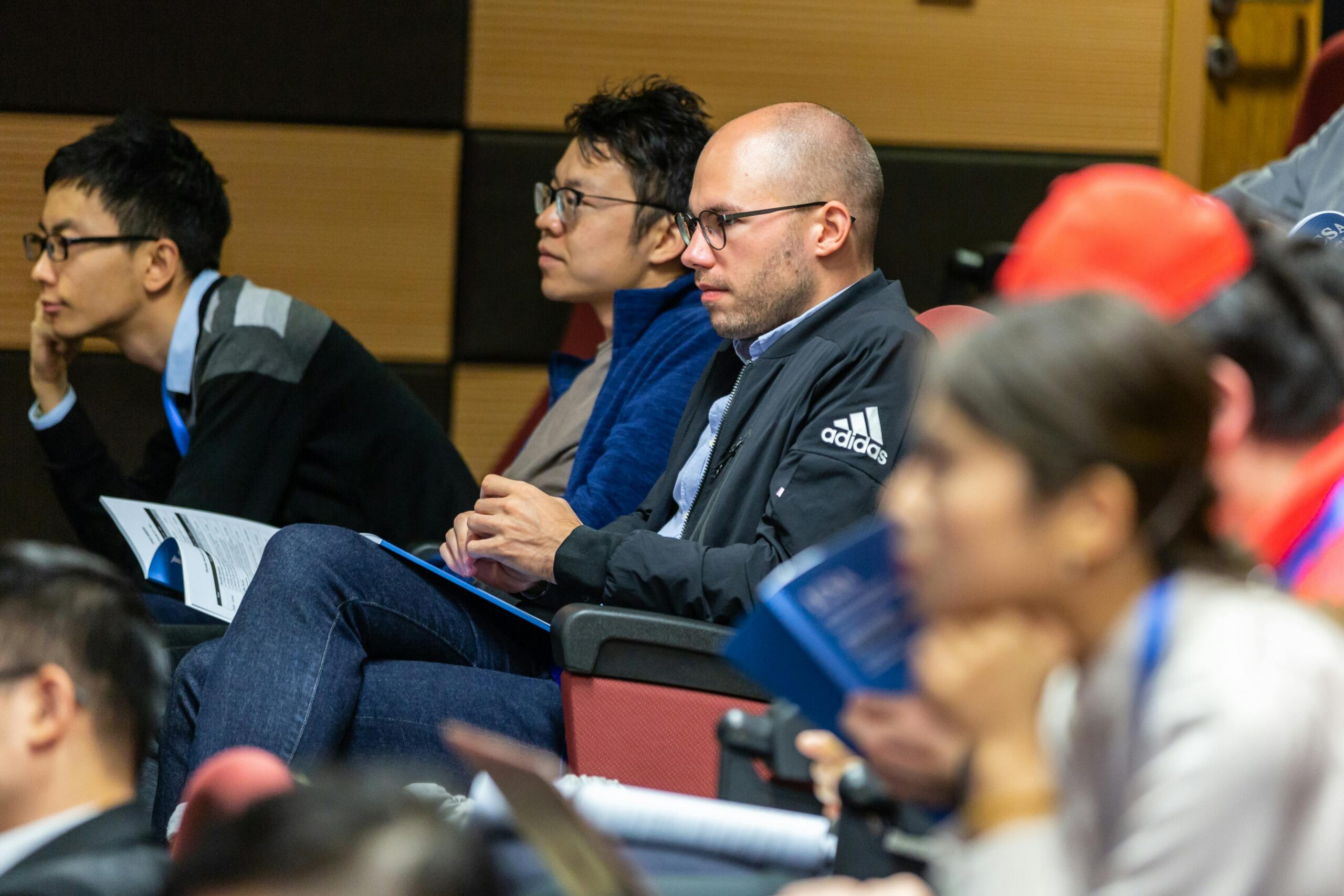
The Lifelong Learning Imperative: Staying Ahead in a Rapidly Changing World
Done in collaboration with PDMAcademy & Masjid us Salaam, La Sophie Trace.
In today’s fast-paced world, the need for continuous learning, upskilling, and incorporating diverse perspectives into our thinking has never been more critical. Whether you’re a student, a young professional, or a seasoned expert, the landscape of knowledge and skills is constantly evolving. There are a number of trends driving this necessity, and commensurate with these are significant benefits that can accrue to persons on this path.
The Need for Continuous Learning
It used to be that once you specialize in a particular area, you could have dedicated your career to perfecting your craft. Today, with the advancement of technology and volatility in the marketplace, persons no longer have that luxury. Fast changes and diverse audiences – and the opportunities associated with them – demand flexibility and adaptability. Learning, unlearning and relearning are becoming standard, and figuring things out mid-journey, in shorter segments (i.e. the agile method) are fast moving to the norm. What are the trends that drive this need for continuous learning?
- Technological Advancements: The rapid pace of technological innovation means that skills quickly become outdated. Fields like artificial intelligence, machine learning, and data science are evolving so fast that staying current requires ongoing education.
- Globalization: In an interconnected world, understanding different cultures, markets, and business practices is crucial. Continuous learning allows you to adapt to and thrive in diverse environments.
- Changing Job Market: The job market is dynamic, with new roles emerging and others becoming obsolete. Upskilling ensures you remain competitive and can transition smoothly between different career paths.
- Information Overload: With the vast amount of information available, the ability to discern credible sources and synthesize diverse viewpoints is a valuable skill. Continuous learning hones this critical thinking ability.
Unparalleled Benefits
The reality today requires a particular approach. Those oriented to stability and comfort would balk at the need to unlearn and relearn, or lament the effort required to keep up with changes. Those seeking the excitement of a dynamic landscape would savor the volatility and constant changes – there’s little room for boredom. But regardless of which side of the coin you fall, there are numerous and significant benefits that can accrue from these trends.
- Enhanced Employability: Regularly updating your skills makes you a more attractive candidate for employers. It demonstrates adaptability, a proactive attitude, and a commitment to personal growth.
- Personal Growth and Fulfillment: Learning new things keeps the mind active and engaged. It can lead to personal satisfaction, increased confidence, and a sense of achievement.
- Better Problem-Solving Skills: Exposure to different ideas and disciplines fosters creativity and innovation. It allows you to approach problems from multiple angles and develop more effective solutions.
- Career Advancement: Continuous learning can open doors to new opportunities and higher positions within your field. It equips you with the knowledge and skills needed to take on greater responsibilities.
- Adaptability to Change: In an ever-changing world, the ability to learn and adapt is essential. Continuous learning prepares you to navigate changes in technology, industry trends, and job requirements.
The Ultimate Hack to Real-Time Progress
While self-directed learning is valuable, having a teacher or mentor can significantly enhance the process and experience, and minimize the effort required to internalize the subject matter and make use of it. This has been a tried and tested model of cognitive development from time immemorial, for many reasons, including:
- Structured Learning Path: A teacher provides a structured curriculum that ensures you cover all necessary topics comprehensively, saving you time and effort.
- Expert Insights: Teachers bring expertise and experience to the table, offering insights that you might not find through self-study. They can help clarify complex concepts and provide practical applications.
- Accountability and Motivation: Regular interactions with a teacher keep you accountable and motivated. They can help you set realistic goals, track your progress, and celebrate your achievements.
- Personalized Feedback: A teacher can provide personalized feedback on your performance, highlighting areas for improvement and offering tailored advice to help you succeed.
- Networking Opportunities: Teachers often have professional networks that can provide additional learning resources, opportunities, and connections within your field.
In a world where change is the only constant, continuous learning is not just an option; it’s a necessity. By embracing lifelong learning, upskilling, and expanding your perspectives, you position yourself for success in both your personal and professional life. And with the guidance of a knowledgeable teacher, you can navigate this journey more effectively, gaining the skills and insights needed to thrive in our rapidly evolving world. So, invest in your future today by committing to continuous learning and seeking out mentors who can guide you along the way.
MAI Institute in collaboration with PDMAcademy & Masjid us Salaam, La Sophie Trace have developed a training program to upgrade persons’ Technical and Industrial Skills and prepare them for jobs in the industrial workplace. Heavy industries, manufacturing and construction are a few of the opportunities that become available with basic skills in electrical wiring and occupational health & safety (HSE) training.
Find out more about the Technical & Industrial Skills Training Program, and gain the edge from more marketability and a different perspective

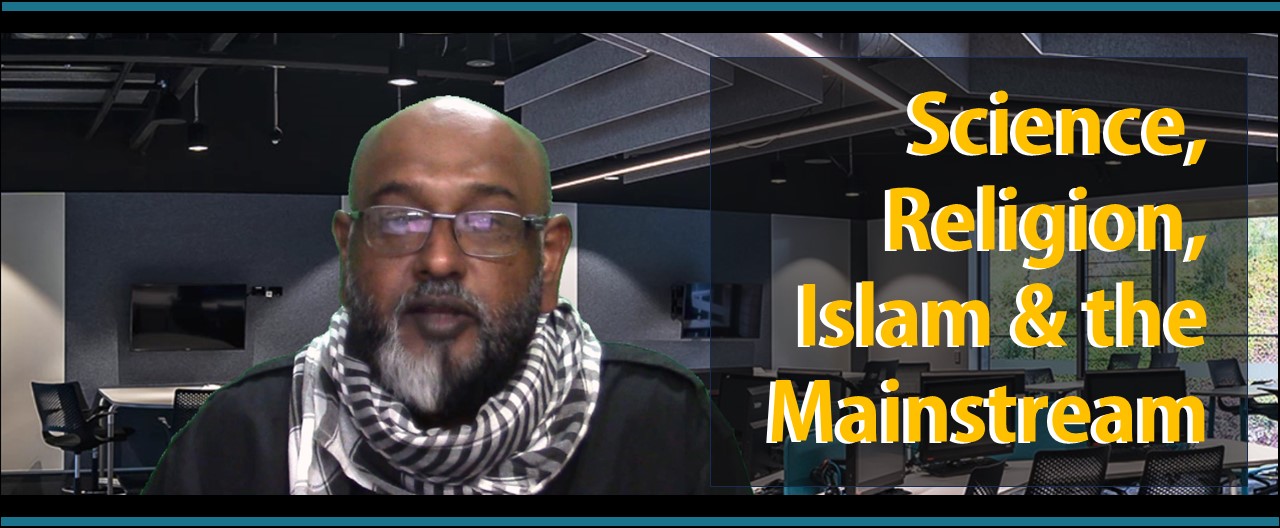
Science, Religion, Islam & the Mainstream
Mainstream media today will have you believe you need to choose between science and religion. And they spin it in a way to make science look modern and progressive, while religion is presented as barbaric and traditional.
We know that is a false narrative.
Throughout history science benefited tremendously from religion. In a simple example the Gregorian calendar that marks the solar year and changes to the seasons was introduced by Pope Gregory 13.
View the video on our YouTube Channel.
And be sure to subscribe & follow for more releases as they go live, & find out more ways to live the best life for this world, & the next.
We have another series of examples in Islam.
As Muslims explorers expanded into Asia, Europe and Africa, they still had to obey the command to face the qibla to pray, 5 times a day. The Quran says explicitly in 2:144 “turn your face toward al-Masjid al-haram. And wherever you [believers] are, turn your faces toward it [in prayer].”).
The problem was, how do you keep your bearings and maintain the direction of the qibla when you are 1000 miles away? Or travelling hundreds of miles per day in different direction. The answer was found in the Quran (6:97: “And it is He (Allah) who placed for you the stars that you may be guided by them through the darknesses of the land and sea.”)
Through that the Arabs consolidated knowledge of astronomy and developed it further than ever before. Ibn al Haytham was celebrated for his work in that area, in the period 1020-1040. To do that, he had to develop better optics, and that is an area as well, along with the introduction of the laws of refraction in which Ibn Haytham was also renowned. This also required the use of trigonometry, advanced by such persons as Al Khawarizmi and Al-Battani. Even the predictability of factors that informed the scientific method ibn Haytham introduced were guided by the Quran 30:30 which says “There is no altering (the laws of) Allah’s creation.”
For Muslims, religious contributions to science, or scientific discoveries evidenced in religion is the norm, and there is no contradiction or competition. Persons who study Islam recognize the relationship, and are able to use Islam to guide even further development, for the benefit of all humankind, and for the best in this world, and the next.

Paradise Ave. – MAI Podcast
In today’s fast-paced digital world, podcasts have emerged as a powerful medium, offering unparalleled convenience and accessibility for listeners on the go. For us at the MAI Institute, we hope through a podcast to be able to extend the MAI family, and provide a platform for meaningful conversations. For you our listeners, this means access to insights from our community of practitioners, hearing inspiring stories and practical advice, all available at your fingertips. Whether commuting, exercising, or relaxing at home, a podcast has the potential to empower and enrich our lives, making valuable information easily accessible anytime, anywhere.
MAI Institute invites you to listen / subscribe to Paradise Ave., your guide to living a fulfilling and meaningful life rooted in Islamic principles.
Join us at the MAI Institute as we explore how to navigate the complexities of modern life while staying true to our faith. Our mission is to provide you with the guidance and motivation needed to thrive both in this world and the hereafter by embracing the tenets of Islam.
In each episode, we delve into practical advice and spiritual insights to help you cultivate a life of purpose, peace, and productivity.
- We tackle pressing issues facing the Muslim community locally in Trinidad and Tobago, throughout the Caribbean, and around the globe.
- From personal development and family matters to social justice and global events, we address these topics from a mainstream Muslim perspective, offering wisdom and support grounded in our shared faith.
Tune in to Paradise Ave. and embark on a journey of self-improvement and community empowerment. Join us at the MAI Institute and let’s walk together on the path to a better life, for this world and the next.
Follow the link https://maiinstitute.com/podcast
Find it on your favorite podcast platform
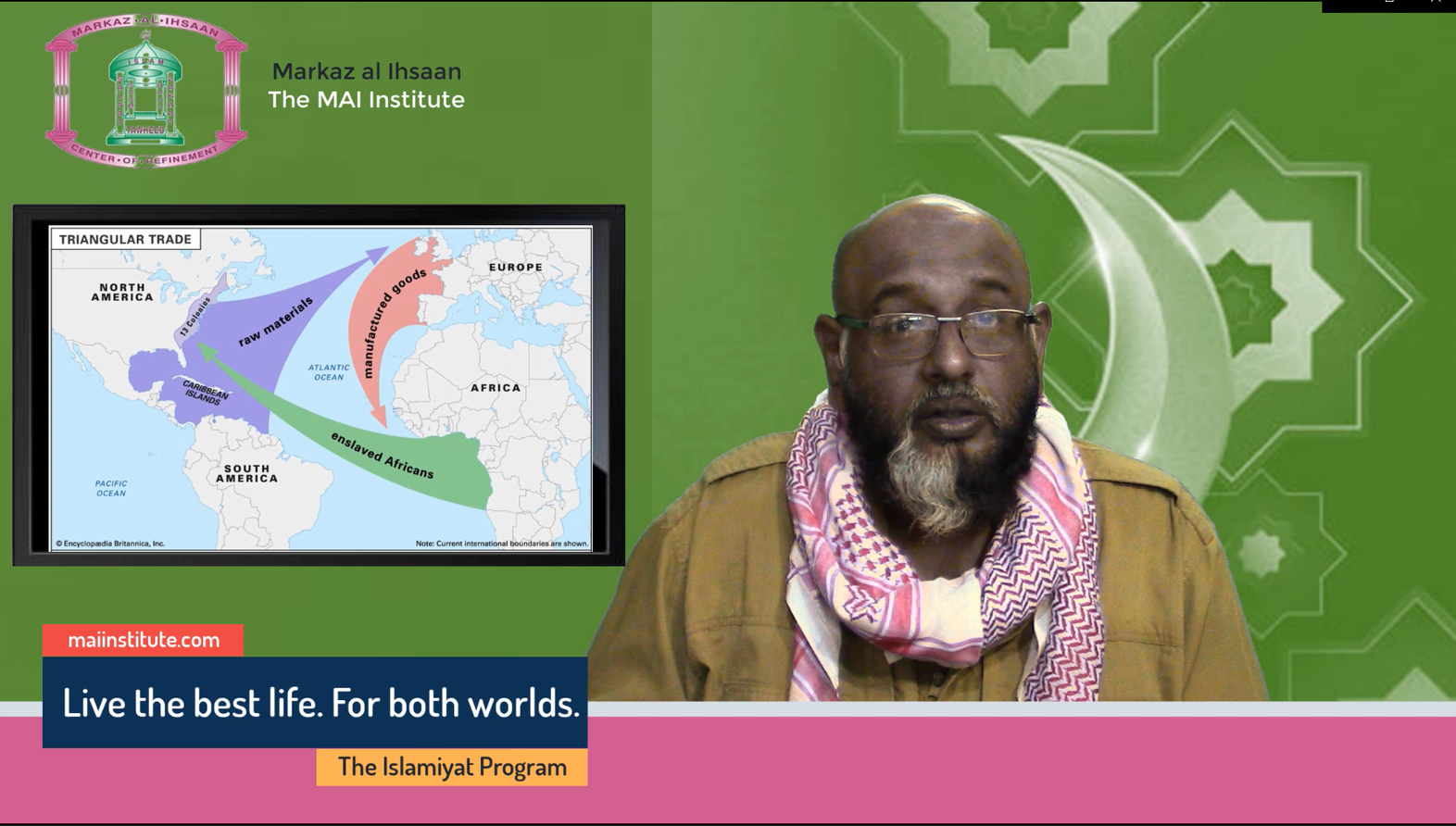
…on the Occasion of Arrival Day
To be any Muslim in the Caribbean is to represent the history of the world. Us being here is the result of the world of historical events coming together.
Prophet Muhammad peace be on him delivered the message of Islam in its form in the period 570 to 622. Islam spread to Africa as early as the 600s and later on India in the 1100s. The Mongolian invasions in the 12-1400s had cut much of the trading on the silk routes, and that had some profound effects on us being here. First of all it channeled the spread of Islam through north Africa into southern Europe, and later later it forced the Europeans to find alternative routes to the east – we had Vasco de Gama sailing south in 1450 and Columbus sailing west in 1492.
We would be more familiar with the slave trade which included some Muslim tribes from Africa coming to T&T, and later the Chinese and Indian indentured labourers who brought with them their religions and customs, which they were free to practice. Later migrations result in a rich tapestry of persons that makes up the community as we know it.
Today we stand proud as a cosmopolitan Muslim community, as the product of every major civilization in world history. Africa, India, China, Mesopotamia, Europe…
Looking back, us being here, is a product of the history of world events and of great civilisations. Looking ahead, insha Allah, we too, in our own humble efforts, hopefully can contribute to the march of civilization, and represent Almighty Allah in all that we do, as we strive to live the best life for this world and the next.
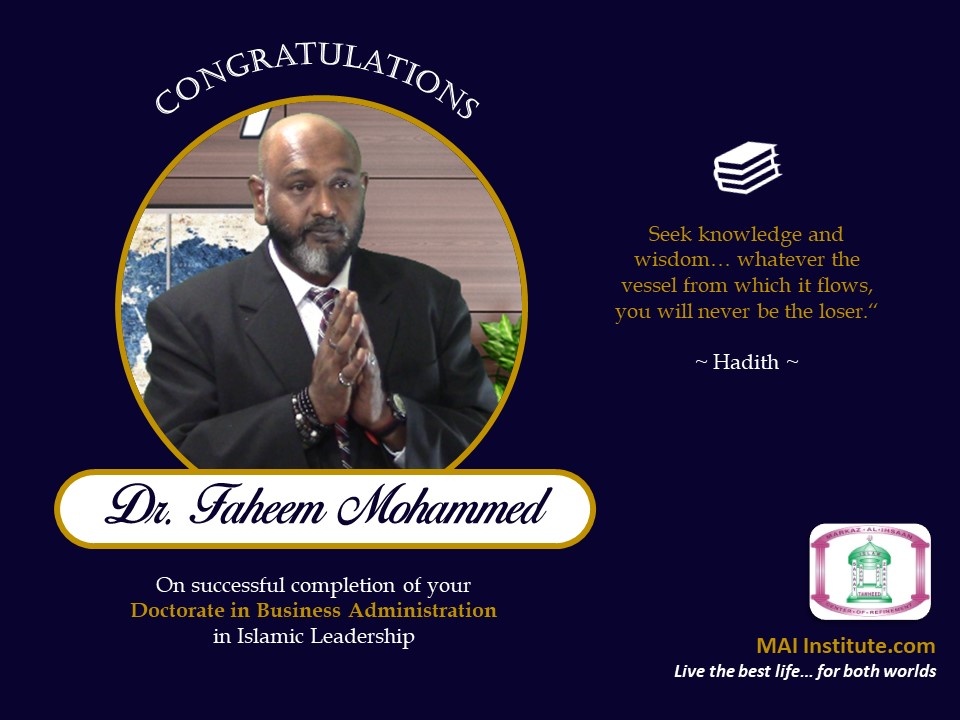
Congratulations!
The management, staff, and students of the Markaz Al Ihsaan congratulate our Executive Director Dr. Faheem Mohammed, Son of Maulana Dr. Waffie Mohammed, for successfully completing his doctorate in Business Administration in Islamic Leadership.
May Almighty Allah continue to shower His mercies and blessings on you and your family and allow us to be amongst those who benefit from the knowledge, wisdom, and guidance that He swt has blessed you with.
آميين

#Congratulations #LearnIslam #livethebestlife #forbothworlds #levelup #maiinstitute

Limitless Rewards
Ramadan is upon us, and although it may not always feel like it, every day of fasting is a gift from Allah.
We are told in the hadith that Allah says “Every deed of the son of Adam will be given a ten-fold reward, up to seven hundred. Except fasting, for it is for Me, and I shall reward for it, for he gives up his desire and his food for My sake…”. This tells us there is no limit to what rewards we stand to gain from fasting.
So in this month, let us strive to fast for the sake of Allah. Let us control our cravings and desire, our thoughts and temper, and when the difficulties of fasting manifest, let us use that as an opportunity to remember Allah more. And be more willing to sacrifice for Him more.
Through this, we can hope to build a closer relationship with Him. And insha Allah He will give us the best of this world, and the Next.
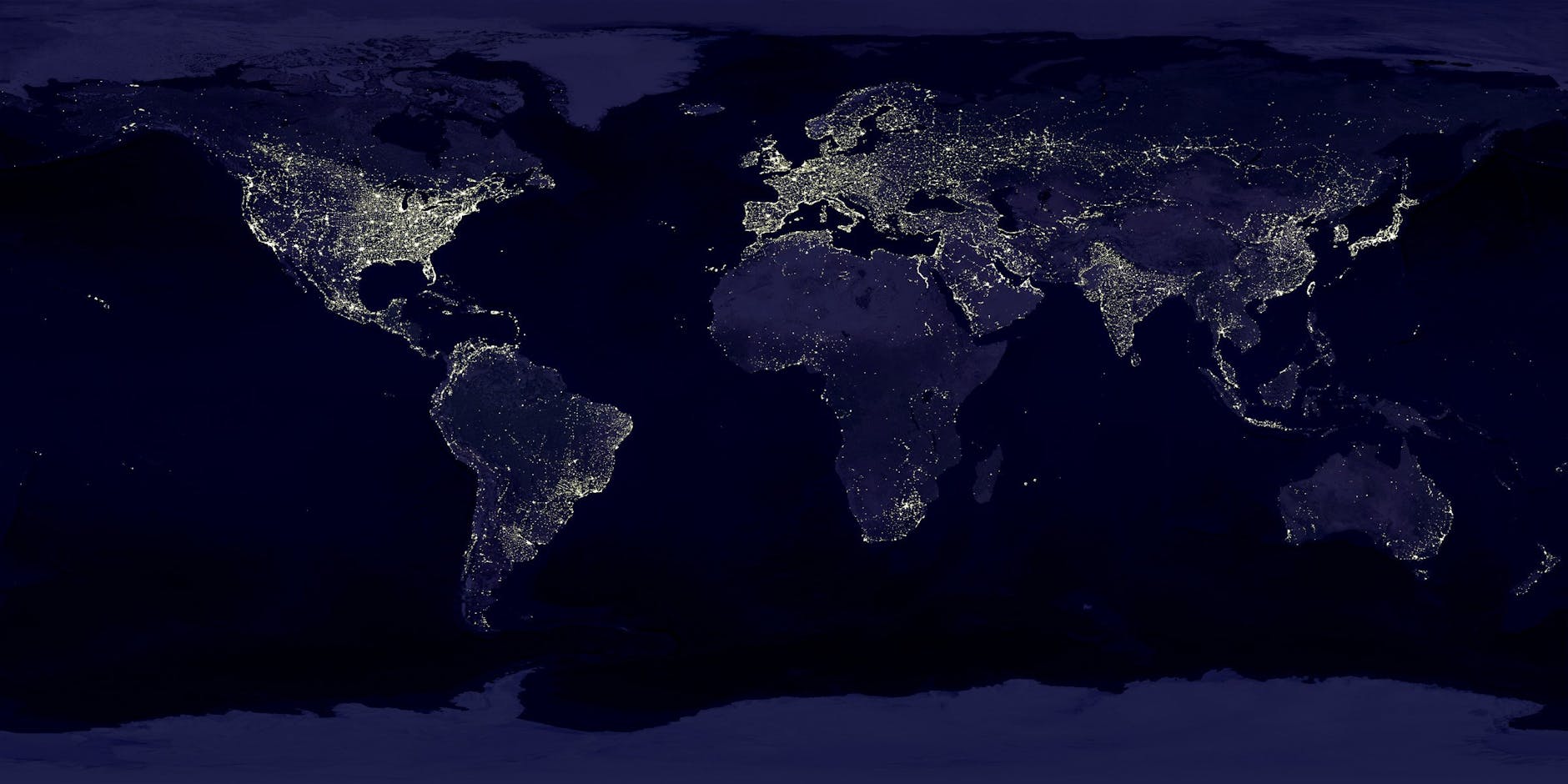
Fasting was given to every nation
Greetings to all believers, because the holy month of ramadan is again with us. We pray to Allah to make it easy for all of us who are qualified to keep the fast that we will be able to do so.
Remember Allah reminds us in His Holy words, He says, Wa anta suumu Khairul lakum If you keep the fast it will be better for you.
My brothers and sisters, fasting is a principle of Islam. But it is something that Allah has given to all human beings, because Allah says in the Quran, O you who believe, fasting has been prescribed for you, as it has been described to all those before you, in order that you may develop piety. So that Muslims should thank Allah that we have been blessed to make the month of Ramadan one of the institutions that will make us better in this world, as well as in the next.
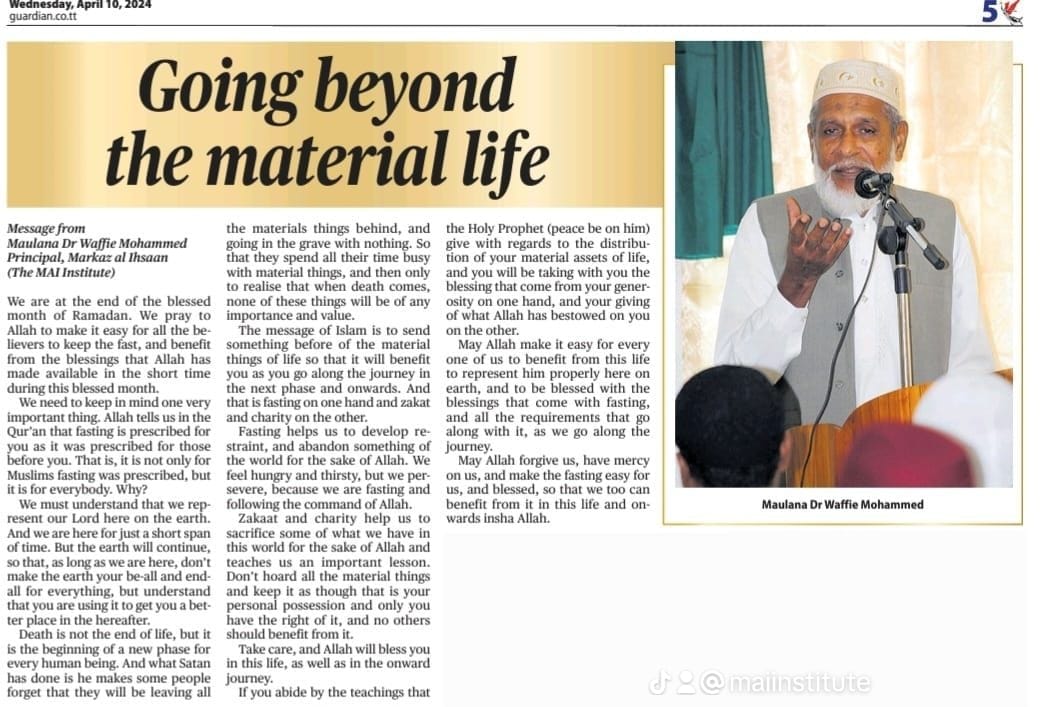
Going Beyond the Material Life
We are in the blessed month of Ramadan, and the month is moving very quickly. We pray to Allah to make it easy for all the believers to keep the fast, and benefit from the blessings that Allah has made available in the short time that is quickly passing, during this blessed month.
We need to keep in mind one very important thing. Allah tells us in the Quran Fasting is prescribed for you as it was prescribed for those before you. That is, it is not only for Muslims fasting was prescribed, but it is for everybody. Why?
We must understand that we represent our Lord here on the earth. And we are here for just a short span of time. But the earth will continue, so that, as long as we are here, don’t make the earth your be-all and end-all for everything, but understand that you are using it to get you a better place in the hereafter.
Death is not the end of life, but it is the beginning of a new phase for every human being. And what Satan has done is he makes some people forget that they will be leaving all the materials things behind, and going in the grave with nothing. So that they spend all their time busy with material things, and then only to realise that when death comes, none of these things will be of any importance and value.
The message of Islam is to send something before of the material things of life so that it will benefit you as you go along the journey in the next phase and onwards. And that is fasting on one hand and zakat and charity on the other.
Fasting helps us to develop restraint, and abandon something of the world for the sake of Allah. We feel hungry and thirsty, but we persevere, because we are fasting and following the command of Allah.
Zakaat and charity help us to sacrifice some of what we have in this world for the sake of Allah, and teaches us an important lesson. Don’t hoard all the material things and keep it as though that is your personal possession and only you have the right of it, and no others should benefit from it.
Take care, and Allah will bless you in this life, as well as in the onward journey.
If you abide by the teachings that the Holy Prophet (peace be on him) gave with regards to the distribution of your material assets of life, and you will be taking with you the blessing that come from your generosity on one hand, and your giving of what Allah has bestowed on you on the other.
May Allah make it easy for every one of us to benefit from this life to represent him properly here on earth, and to be blessed with the blessings that come with fasting, and all the requirements that go along with it, as we go along the journey.
May Allah forgive us, have mercy on us, and make the fasting easy for us, and blessed, so that we too can benefit from it in this life and onwards insha Allah.
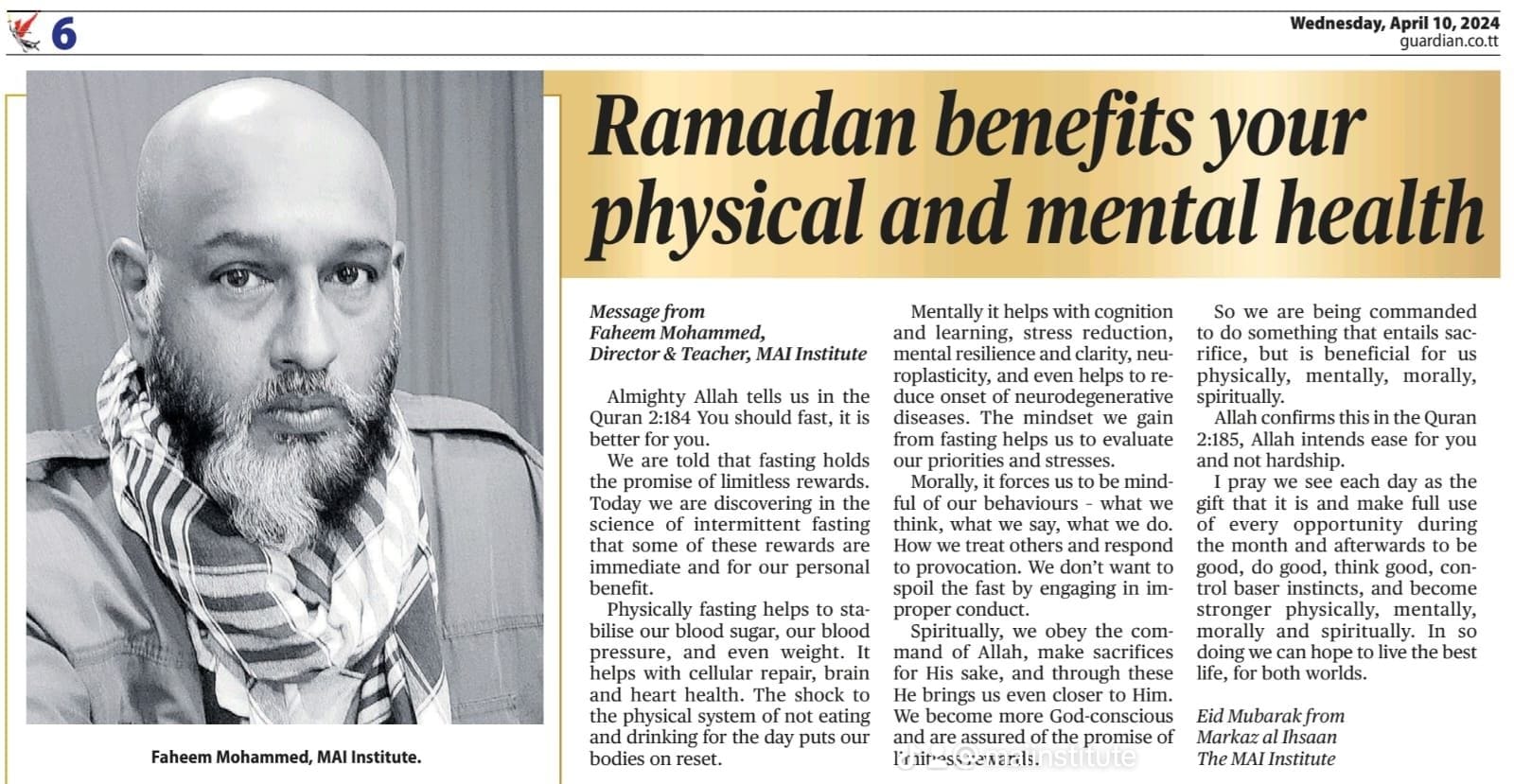
Ramadan Hack for Your Physical and Mental Health
Almighty Allah tells us in the Quran 2:184 You should fast it is better for you.
We are told that fasting holds the promise of limitless rewards. Today we are discovering in the science of intermittent fasting that some of these rewards are immediate and for our personal benefit.
- Physically fasting helps to stabilize our blood sugar, our blood pressure, and even weight. It helps with cellular repair, brain and heart health. The shock to the physical system of not eating and drinking for the day puts our bodies on reset.
- Mentally it helps with cognition and learning, stress reduction, mental resilience and clarity, neuroplasticity, and even helps to reduce onset of neurodegenerative diseases. The mindset we gain from fasting helps us to evaluate our priorities and stresses.
- Morally it forces us to be mindful of our behaviors – what we think, what we say, what we do. How we treat others and respond to provocation. We don’t want to spoil the fast by engaging in improper conduct.
- Spiritually we obey the command of Allah, make sacrifices for His sake, and through these He brings us even closer to Him. We become more God-conscious, and are assured of the promise of limitless rewards.
So we are being commanded to do something that entails sacrifice, but is beneficial for us physically, mentally, morally, spiritually…
Allah confirms this in the Quran 2:185 Allah intends ease for you and not hardship.
I pray we see each day as the gift that it is, and make full use of every opportunity during the month and afterwards to be good, do good, think good, control baser instincts, and become stronger physically, mentally, morally and spiritually. In so doing we can hope to live the best life, for both worlds.
Ramadan Mubarak from Markaz al Ihsaan – The MAI Institute.
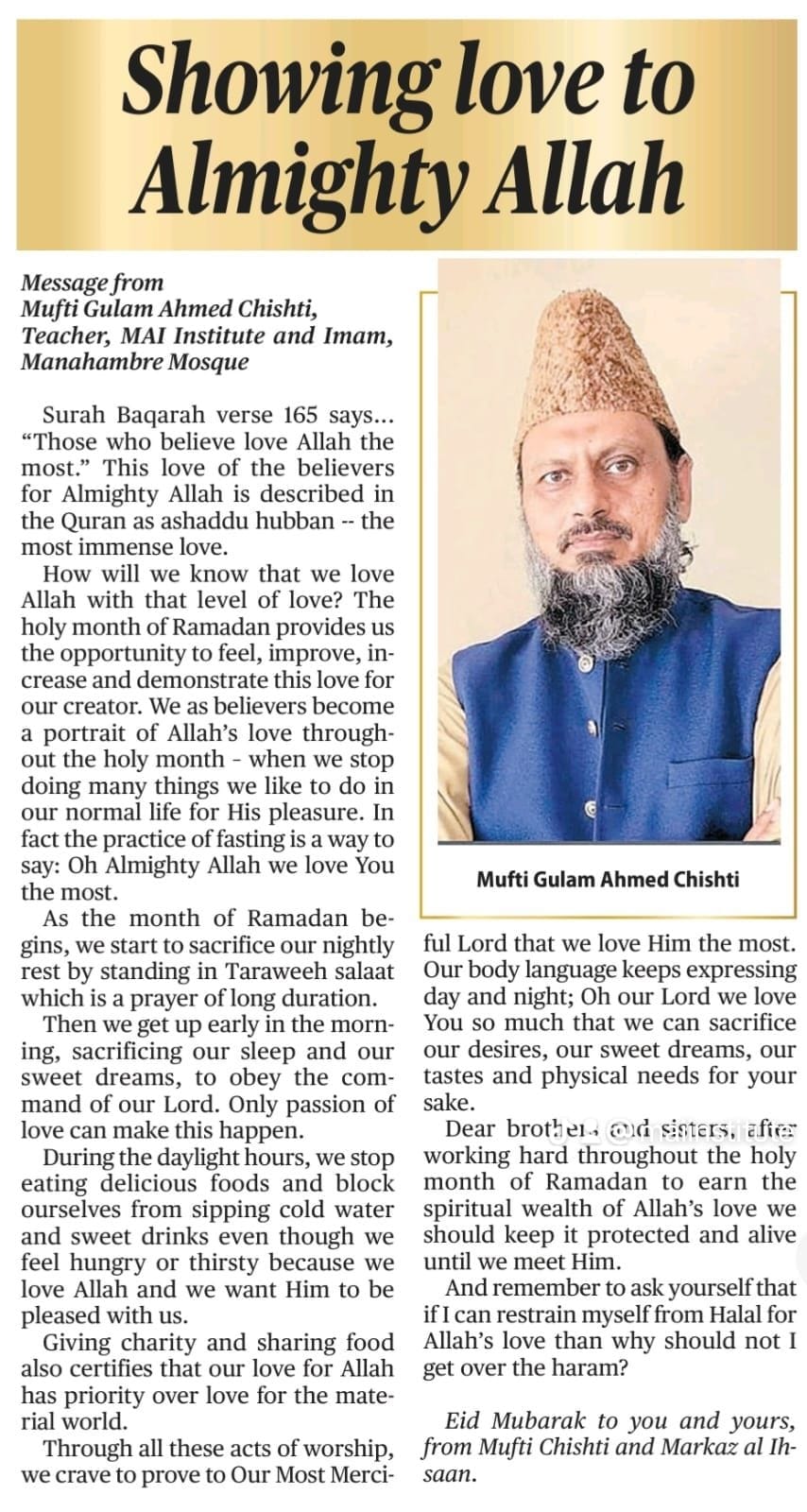
Showing Love to Almighty Allah
Surah Baqarah verse 165 says… “Those who believe love Allah the most.” This love of the believers for Almighty Allah is described in the Quran as ashaddu hubban – the most immense love.
How we will know that we love Allah with that level of love? The holy month of Ramadan provides us the opportunity to feel, improve increase and demonstrate this love for our creator. We as believers become a portrait of Allah’s love throughout the holy month – when we stop doing many things we like to do in our normal life for His pleasure. In fact the practice of fasting is a way to say: Oh Almighty Allah we love You the most.
As the month of Ramadan begins, we start to sacrifice our nightly rest by standing in Taraweeh salaat which is a prayer of long duration.
Then we get up early in the morning, sacrificing our sleep and our sweet dreams, to obey the command of our Lord. Only passion of love can make this happen.
During the daylight hours, we stop eating delicious foods and block ourselves from sipping cold water and sweet drinks even though we feel hungry or thirsty because we love Allah and we want Him to be pleased with us.
Giving charity and sharing food also certifies that our love for Allah has priority over love for the material world.
Through all these acts of worship, we crave to prove to Our Most Merciful Lord that we love Him the most. Our body language keeps expressing day and night; Oh our Lord we love You so much that we can sacrifice our desires, our sweet dreams, our tastes and physical needs for your sake.
Dear brothers and sisters, after working hard throughout the holy month of Ramadan to earn the spiritual wealth of Allah’s love we should keep it protected and alive until we meet Him.
And remember to ask yourself that if I can restrain myself from Halal for Allah’s love than why should not I get over the Haram?
Eid Mubarak to you and yours, from Mufti Chishtie, and Markaz al Ihsaan.